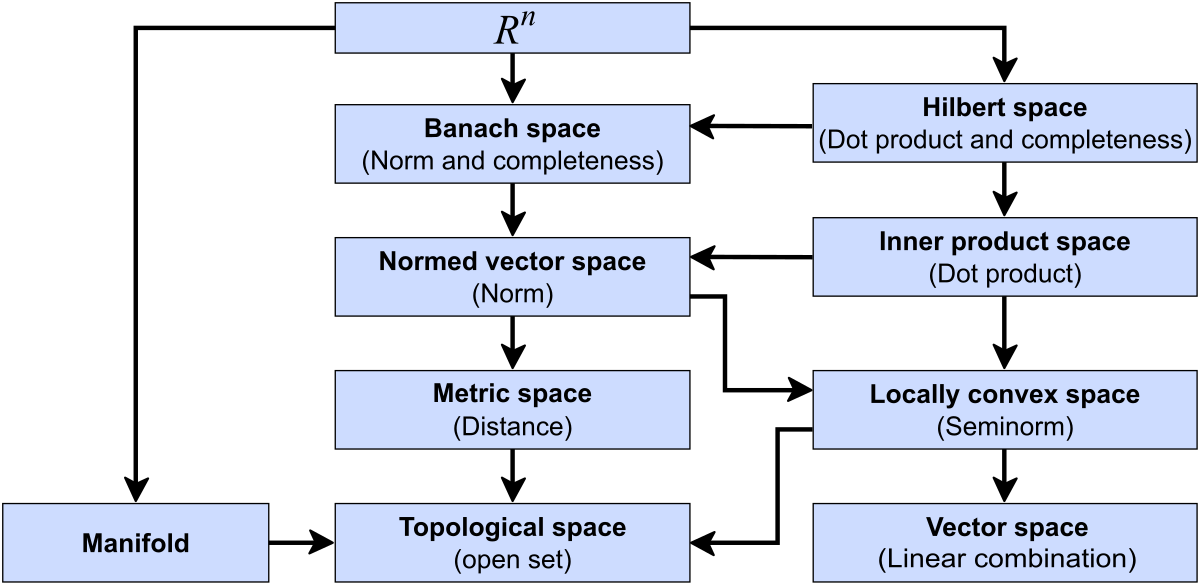Thank you!
"In
mathematics, a
space is a
set (sometimes known as a
universe) with a definition (
structure) of relationships among the
elements of the set."
I don't understand "
with a definition (structure) of relationships among the elements of the set."
Is the definition we learn in elementary algebra, physical space, the notion of 2d and 3d , different?
The term is intentionally vague, I think, allowing for anything broadly analogous to the physical (3D Euclidean) space we are familiar with. This space is a set of points, related (structured) by coordinates or distances, and it's the model for what we mean by "space".
So if we are thinking about
some sort of set that is more than just a set of unrelated points, we can call it a "____ space", with the adjective labeling either the kind of relationships involved. or the kind of objects in the space.
In order to understand the first sentence, which you quoted, you have to move on to the next sentence. (This is often true of understanding anything new! Read on for examples and explanations.) Here, the next sentence is:
This gives examples that you can look into (some of them easier to understand than others), and also that important fact that the notion is vague -- it doesn't really have a definition at all. So don't expect to ever have a clear idea of
exactly what a space is; it can be just about anything.
Taking some of the links, such as the one for "structure" may also help. Again, I'd be mostly looking for more examples. Also, as usual with Wikipedia, don't think you have to read it all; the first few paragraphs, and the starts of some examples, are probably all you need to see before being overwhelmed.


